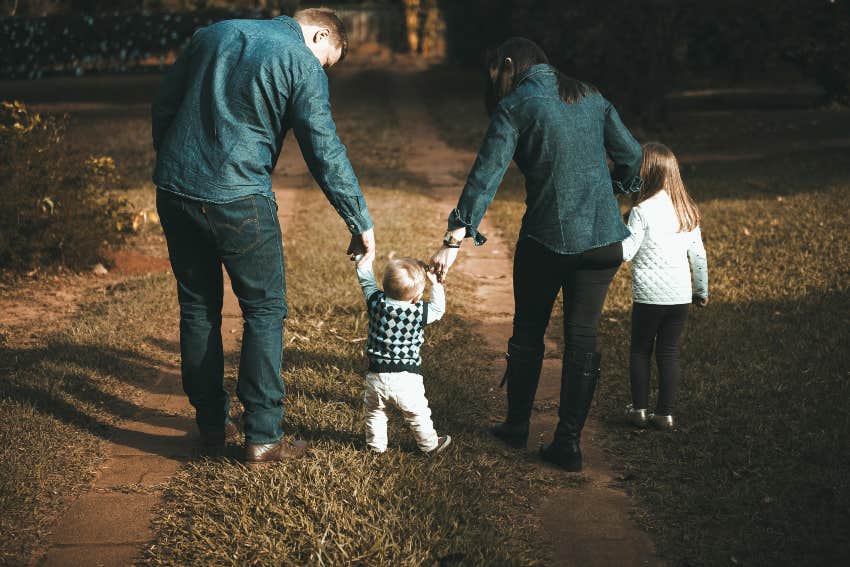The Attachment Style Of The Happiest Couples, According To Research
Are you part of this subgroup?
 mediaphotos | Canva
mediaphotos | Canva You might not believe it, but the way human beings behave when they are in relationships with each other can in many ways be explained by understanding how our childhood attachments affect how secure or insecure we feel with others throughout our adult lives. In psychology, this phenomenon is known as attachment theory.
Attachment theory, the psychological model used to understand how our relationships are affected by the quality of our childhood bond with primary caregivers, was first developed by John Bowlby between the 1930s and 1950s and was further developed by Mary Ainsley in the 1960s and 1970s.
You don't have to be a scientist to understand what attachment theory is all about. Essentially, there are two groups of attachment styles: secure and insecure. A majority of the population falls within the secure group and is just made up of one subgroup: those with a secure attachment style.
Stan Tatkin, PsyD, MFT, an Assistant Clinical Professor at UCLA and founder of the Psychobiological Approach to Couple Therapy® (PACT), offers a great breakdown of what he identifies as the three attachment styles in his book, Wired For Love. The three basic attachment styles in Tatkin's model are:
- Islands: people with an avoidant attachment style
- Waves: people with an anxious attachment style
- Anchors: people with a secure attachment style
In this case, anchors aren't viewed as something that weighs you down against your will, but rather as something helpful and grounding. Let's break down the personality traits of people who are "anchors" with a secure attachment style.
The attachment style of the happiest couples is secure attachment, and research tells us why:
1. People who are securely attached value relationships
A person with a secure attachment style craves closeness, connection, and intimacy, psychology tells us. Developing, nurturing, and sustaining relationships of all sorts is something of a core value to them. Chances are they were raised in a home where they saw positive modeling of what healthy relationships look like.
2. People who are securely attached love working with others
A person with a secure attachment type does not struggle when it comes to working with other people. In the workplace, they understand team dynamics and are always willing and able to contribute collaboratively. They know when to share ideas at work, and they know when to share feelings with their partner.
 Ketut Subiyanto / Pexels
Ketut Subiyanto / Pexels
3. People who are securely attached read people well
A person with a secure attachment style doesn't often focus on the "what ifs" or give into paranoia the way someone with an anxious attachment style might. This is because they are adept are reading other people's body language and micro-expressions.
Reading body language is complex and difficult, and requires practice, according to research. They tend to make other people feel comfortable, which is why they often do not attract avoidant or anxious types.
4. People who are securely attached experience healthy family dynamics
Most people with a secure attachment style come from a home where they learn how to be open and honest in their relationships. There might have been other issues, but overall their experience being raised was positive. This often isn't the case for people with anxious or avoidant styles.
 Vidal Balielo Jr. / Pexels
Vidal Balielo Jr. / Pexels
5. People who are securely attached
What is sometimes a skill that the other types struggle to learn over time comes naturally to the secure attachment style. They are ready, willing, and able to be loved, and they are eager to open up to their partner and to have that be reciprocated. A secure attachment style is, believe it or not, the most common attachment style for most people, research says.
While this person might experience other issues that need work in their romantic relationships, very often they enjoy a fairly straightforward path to love and commitment, provided they are in a relationship with a person with a matching attachment style, or with a person eager to do the work needed to form a true attachment.
Rebecca Jane Stokes is a freelance writer and editor with a passion for lifestyle, geek news, and true crime topics. Her bylines have appeared on Fatherly, Bustle, SheKnows, Jezebel, and many others.

